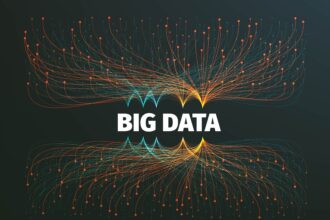ETL (Extract, Transform, Load) is a crucial process in the world of data analytics and business intelligence. In this article, we will explore the significance of ETL and how it plays a vital role in enabling effective decision making within businesses. By understanding the power of ETL, organisations can harness the potential of their data and gain valuable insights that drive informed choices.
What is ETL?
ETL is a three-step process that involves extracting data from various sources, transforming it into a consistent format, and loading it into a target database or data warehouse. Let’s break down each step:
1. Extract
The extraction phase involves retrieving data from diverse sources such as databases, spreadsheets, APIs, or other systems. Data extraction can be a complex task, especially when dealing with large volumes of information from multiple sources. ETL tools come in handy here, as they provide efficient mechanisms to extract data seamlessly.
2. Transform
Once the data is extracted, it often requires cleansing and transformation. In this phase, the data is standardised, validated, and restructured to ensure consistency and accuracy. Transformations may include data cleansing, aggregation, filtering, and enrichment. By applying these operations, organisations can ensure that the data is reliable and ready for analysis.
3. Load
After the data has been transformed, it needs to be loaded into a target system for further analysis. This target system is typically a data warehouse or a dedicated database optimised for reporting and analytics. The loading phase involves mapping the transformed data to the appropriate structure of the target system and populating it accordingly.
The Importance of ETL in Business Decision Making
ETL plays a critical role in enabling organisations to make data-driven decisions. Here’s why ETL is important for effective business decision making:
1. Data Integration and Consistency
In today’s digital landscape, organisations accumulate data from a wide array of sources. ETL processes facilitate the integration of data from disparate systems, ensuring that all relevant information is consolidated in one place. By harmonising and standardising data through ETL, businesses can eliminate inconsistencies and achieve a single version of truth for analysis.
2. Improved Data Quality
Data quality is paramount when it comes to making accurate business decisions. ETL (Extract, Transform, Load) processes, as well as ELT (Extract, Load, Transform) processes, allow organisations to identify and rectify data quality issues by applying cleansing and validation techniques. By leveraging ETL or ELT, organisations can cleanse the data and remove duplicates, errors, and outliers, enhancing the reliability and validity of their datasets. This, in turn, leads to more accurate insights and informed decision-making.
The choice between ETL vs ELT depends on various factors, including the specific requirements of the organisation and the nature of the data being processed. ETL processes typically perform data cleansing and transformation before loading the data into a target system, ensuring that the data is clean and consistent from the outset. On the other hand, ELT processes load the raw data into the target system first and then perform transformations on the data within the system itself. Both approaches aim to improve data quality and enable accurate analysis.
3. Time Efficiency
ETL processes automate the extraction, transformation, and loading of data, saving valuable time for businesses. Instead of manually gathering data from different sources and preparing it for analysis, ETL tools streamline the process and enable quick access to updated and consolidated data. This time efficiency empowers decision-makers to access real-time insights promptly, enabling them to respond swiftly to market changes and make informed decisions.
4. Enhanced Analytics and Reporting
By employing ETL processes, organisations can optimise their analytics and reporting capabilities. ETL allows for the creation of data models that support complex queries and calculations. These models provide a solid foundation for data analysis, allowing decision-makers to explore trends, patterns, and correlations. With accurate and comprehensive reporting, organisations can gain actionable insights and drive data-backed decision making.
5. Scalability and Future-Proofing
As businesses grow, so does their data volume and complexity. ETL processes offer scalability, allowing organisations to handle large datasets efficiently. By implementing ETL pipelines, businesses can adapt to evolving data requirements and future-proof their analytics infrastructure. This scalability ensures that decision-making processes remain effective and robust as the organisation expands.
Conclusion
In the age of data-driven decision making, ETL is a cornerstone process that enables organisations to unlock the full potential of their data. By extracting, transforming, and loading data, businesses can integrate information from diverse sources, ensure data quality, save time, enhance analytics capabilities, and prepare for future growth. Embracing ETL as a vital component of their data strategy empowers organisations to make informed decisions, gain a competitive edge, and drive success in today’s dynamic business landscape.










